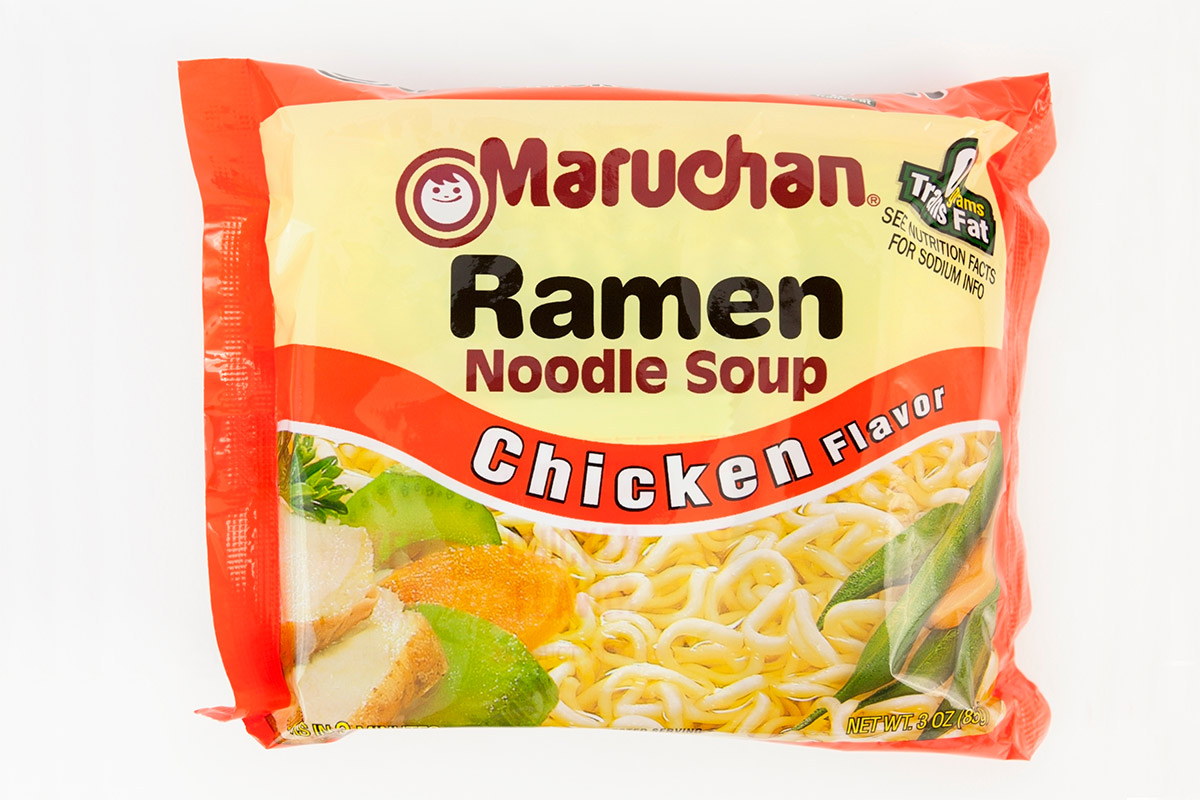Ramen Noodle Recall: Understanding The Issue, Causes, And Impacts
Ramen noodle recall is a significant issue that has captured the attention of food enthusiasts, industry experts, and health-conscious consumers worldwide. This phenomenon involves the withdrawal of certain ramen products from the market due to safety concerns, contamination, or quality issues. Understanding the root causes and implications of these recalls is crucial for ensuring food safety and maintaining consumer trust.
Instant noodles, particularly ramen, have become a staple in many households. Their affordability, convenience, and versatility make them a go-to choice for millions of people globally. However, when these products are subject to recall, it raises questions about manufacturing processes, quality control, and regulatory compliance. This article aims to provide a comprehensive overview of the topic, addressing the key aspects of ramen noodle recalls.
By exploring the reasons behind these recalls, their impact on consumers and the industry, and the measures being taken to prevent future incidents, we can gain a better understanding of how to ensure the safety of our food supply. This knowledge is essential for anyone who consumes or works within the food industry.
Read also:Is Ana De Armas Married A Comprehensive Guide To Her Relationship Status
Table of Contents
- Background on Ramen Noodle Recall
- Causes of Ramen Noodle Recalls
- Impacts on Consumers and Industry
- Regulatory Measures in Place
- Preventing Future Recalls
- Advice for Consumers
- A Brief History of Ramen Noodles
- Key Statistics and Data
- Case Studies of Notable Recalls
- Conclusion and Final Thoughts
Background on Ramen Noodle Recall
Ramen noodles, originally from Japan, have become a global phenomenon. However, over the years, several instances of ramen noodle recall have raised concerns about food safety. These recalls often stem from contamination, mislabeling, or failure to comply with safety standards. Understanding the background of these incidents is essential for grasping the broader implications.
The history of ramen noodle recalls dates back several decades, with notable incidents occurring in various regions worldwide. These incidents have prompted regulatory agencies to tighten their standards and manufacturers to enhance their quality control processes. By examining the background of these recalls, we can better appreciate the challenges faced by the industry and the steps being taken to address them.
Causes of Ramen Noodle Recalls
Ramen noodle recalls are typically caused by a variety of factors, ranging from contamination to labeling errors. Below are some of the primary causes:
- Contamination: Bacterial or chemical contamination during production or packaging.
- Mislabeling: Incorrect labeling of ingredients, allergens, or nutritional information.
- Quality Control Failures: Inadequate monitoring during the manufacturing process.
- Regulatory Non-Compliance: Failure to adhere to local or international food safety regulations.
Each of these factors contributes to the growing number of recalls, highlighting the need for stricter oversight and better practices.
Impacts on Consumers and Industry
The impact of ramen noodle recalls extends beyond the immediate health risks faced by consumers. Economically, recalls can result in significant financial losses for manufacturers and distributors. Additionally, consumer trust is often eroded, leading to decreased sales and brand loyalty.
For consumers, the effects can be severe, ranging from mild allergic reactions to more serious health issues. Understanding these impacts is crucial for both individuals and businesses involved in the food industry. By addressing these concerns, companies can work towards rebuilding trust and ensuring the safety of their products.
Read also:Unlocking The Secrets Of Sand Kingdom Mario Odyssey Moons
Regulatory Measures in Place
Governments and regulatory bodies worldwide have implemented various measures to address the issue of ramen noodle recalls. These include:
- Enforcing stricter food safety regulations.
- Conducting regular inspections of manufacturing facilities.
- Implementing mandatory recalls for non-compliant products.
These measures aim to protect consumers and hold manufacturers accountable for the quality and safety of their products. By adhering to these regulations, companies can reduce the likelihood of future recalls and improve overall food safety standards.
Preventing Future Recalls
Preventing future ramen noodle recalls requires a multifaceted approach involving both manufacturers and regulatory agencies. Key strategies include:
- Enhanced Quality Control: Implementing advanced technologies and processes to monitor production.
- Staff Training: Educating employees about food safety best practices.
- Transparency: Encouraging open communication between manufacturers and consumers.
By adopting these strategies, the industry can work towards minimizing the occurrence of recalls and ensuring the safety of its products.
Advice for Consumers
For consumers, staying informed about ramen noodle recalls is essential. Here are some tips to help you protect yourself:
- Regularly check for recall notices on official websites or news outlets.
- Pay attention to ingredient labels and allergen warnings.
- Report any suspected issues to the appropriate authorities.
By following these guidelines, consumers can make informed decisions and reduce their risk of exposure to unsafe products.
A Brief History of Ramen Noodles
Ramen noodles have a rich history that dates back to early 20th-century Japan. Initially introduced by Chinese immigrants, ramen quickly gained popularity due to its delicious taste and versatility. Over the years, it has evolved into a global phenomenon, with countless variations available worldwide.
This historical context provides valuable insights into the development of ramen noodles and their significance in modern cuisine. Understanding this background helps us appreciate the cultural and economic impact of these products.
Key Statistics and Data
Data and statistics play a crucial role in understanding the scope and impact of ramen noodle recalls. According to a report by the World Instant Noodles Association, global instant noodle consumption reached approximately 110 billion servings in 2022. However, this figure also highlights the potential risks associated with mass production and distribution.
Studies conducted by food safety organizations indicate that contamination and mislabeling are among the leading causes of recalls. These findings underscore the importance of implementing effective preventive measures to ensure product safety.
Case Studies of Notable Recalls
Several high-profile ramen noodle recalls have occurred in recent years, providing valuable lessons for the industry. For example, in 2019, a major manufacturer issued a recall due to potential contamination with a harmful chemical. Similarly, in 2021, another company withdrew several products due to incorrect labeling of allergens.
These case studies highlight the importance of vigilance and proactive measures in preventing similar incidents in the future. By analyzing these examples, manufacturers can identify common pitfalls and work towards improving their processes.
Conclusion and Final Thoughts
Ramen noodle recall is a critical issue that affects both consumers and the food industry. By understanding the causes, impacts, and preventive measures associated with these recalls, we can work towards ensuring the safety and quality of our food supply. Regulatory bodies, manufacturers, and consumers all play a vital role in this process.
We encourage readers to stay informed about food safety issues and take an active role in protecting themselves and their families. Share your thoughts and experiences in the comments below, and don't forget to explore other informative articles on our website.
Sources:
- World Instant Noodles Association (WINA)
- U.S. Food and Drug Administration (FDA)
- European Food Safety Authority (EFSA)
Article Recommendations


